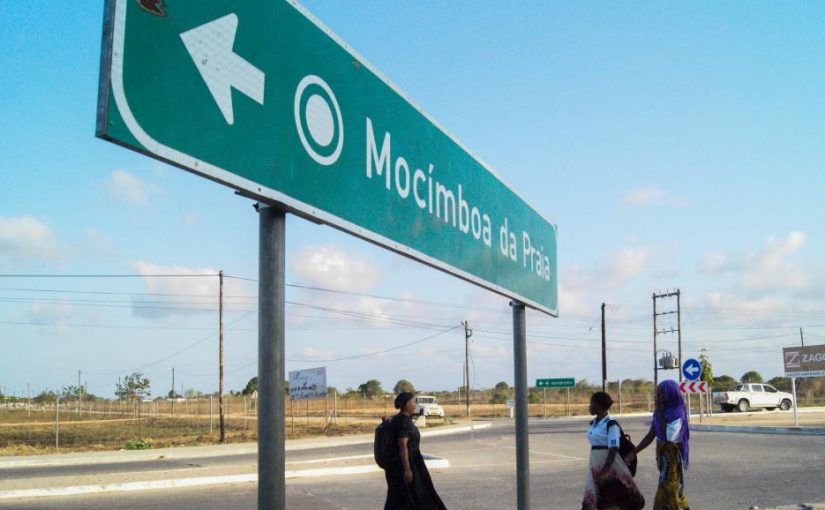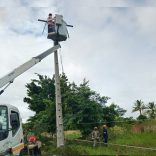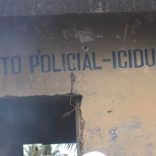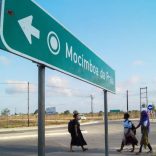Cybercrime in Mozambique increased by 16% last year
Mozambique: Islamists funded by illegal trade in timber and rubies – AIM report

File photo
The first study of the islamist insurgency in Mocimboa da Praia district, in the northern Mozambican province of Cabo Delgado, has found that the rebels are funded by the illegal trafficking in timber and rubies.
The study, drawn by Muslim cleric Sheik Saide Habibe, and researchers Joao Pereira and Salvador Forquilha, says that the group, known locally as “Al-Shabaab” or as “Al-Sunna”, began its operations in Cabo Delgado first as a religious organisation, but decided to set up military cells as from late 2015.
It shot to prominence with attacks on police units in Mocimboa da Praia on 5 October 2017. Although the authorities quickly reasserted control of Mocimboa town, sporadic ambushes on the district’s roads and against outlying villages have continued. Occasionally the group has raided into the neighbouring districts of Palma and Nangade.
The study, entitled “Islamic radicalisation in northern Mozambique: the case of Mocimboa da Praia”, claims that the fundamentalists can make three at least three million dollars a week from trafficking in timber, and over 30 million dollars a year from the sales of illegally mined rubies.
ALSO READ: Militias with terrorist links trained up to 40 members who torment northern Mozambique
Three alleged Al Shabab members arrested in Cabo Delgado, Mozambique
Women flee from islamist captivity- AIM report
Habibe, who presented the study in Maputo on Tuesday, did not give a source for these figures, which sound far too high. For while rubies are small enough to be smuggled out in luggage, timber is bulky and clandestinely moving three million dollars worth a week through local ports (Pemba or Nacala) would be difficult, requiring a large number of trucks and containers.
Habibe said the illicit trade also included ivory, and the trafficked goods “enter an international network of illicit trade, involving other actors, not only in Tanzania and the Great Lakes region, but also Chinese and Vietnamese nationals”.
In addition sympathisers inside and outside the country donate money by electronic means to leaders of the group.
The funds raised, Habibe said, go to providing an income for the fundamentalist leaders, to help recruit new members, and to paying expenses for the group’s “spiritual leaders” to travel between Tanzania and Mocimboa da Praia.
ALSO READ: No “attacks” in Cabo Delgado, just “crimes”, say police – Mozambique
Alleged Islamist base shelled near Mocimboa da Praia – By Joseph Hanlon
Habibe said members of “Al Sunna” have been recruited through family ties and mosques, and some of the military training has been done by people expelled from the Mozambican police.
“Indirect recruiting is done through videos used by radical movements in Kenya and Tanzania. The great name in these lectures is a man who has now been killed by the Kenyan police, Sheik Abudo Rogo Mohammed”, added Habibe.
With the death of Abudo Rogo, his followers decided to continue his work in other countries, initially in Tanzania, and arrived in northern Mozambique in 2015.
The study found that the group’s leaders have links (religious, military and commercial) with fundamentalist groups in Somalia, Kenya, Tanzania and the Great Lakes region. They differentiate themselves from the orthodox muslims of Cabo Delgado by adopting a distinctive dress – white turbans, shaved heads, long beards, and black shorts.
ALSO READ: Watch: Men trained in DR Congo to destabilise are captured – Mocímboa da Praia
Cabo Delgado: Minister of Defence calls for the denunciation of armed men
The group claims that mainstream Mozambican mosques have abandoned the teachings of the prophet Mohammed and are a degenerate form of Islam. They refuse to send their children to official schools, and refuse to enter into any dialogue with Mozambican state bodies or with the local religious leaderships. Since the local mosques are considered decadent, members of the group enter them wearing shoes and carrying weapons – an attitude that muslims normally regard as shocking,
The study found that the group’s social base is among unemployed and marginalised youth, particularly speakers of the Kimwani language. The Kimwanis are the smallest ethnic group in Cabo Delgado, greatly outnumbered by speakers of the Makua and Makonde languages.
ALSO READ: Update: President Nyusi leaves Tanzania after short visit to hold talks with Magufuli – Watch
Tanzania, Mozambique sign MoU in curbing terrorism, drugs trafficking
Mozambique, Uganda to cooperate on terror fight
The researchers found that the Kimwanis resent the dominance of Makonde speakers, and believes this explains the popularity of the Renamo rebel movement among the Kimanis (although there is no suggestion that Renamo has anything to do with the Islamist group).
ALSO READ: Groups with terrorist links in Mozambique protect illegal trade routes to the north
Rubies account for half of Cabo Delgado state revenue
Watch: Mozambique loses $2.5bn per year to illegal logging – Official
The interviews the researchers undertook also suggested that poverty, unemployment and social exclusion were among the reasons for joining the group, as was a “search for adventure”. The marginalised youths found in the islamist group “a new family, giving a sense of security and solidarity”.
The group’s religious leaders are mostly young, trained outside Mozambique, and they do not fit into the orthodox local mosques. The ranks of the group are also swelled by immigrants from Tanzania, Somalia and the Great Lakes region.
ALSO READ: Individuals allegedly linked to Al Shabaab attack police station in Mocímboa da Praia – Mozambique
Mocímboa blames migration and foreign recruitment for attacks in Mozambique
The group was organised into cells that enjoyed “relative autonomy”, the study found. There were “flexible chains of command”, but “the connection with the central command of the group remained strong”.
Habibe said there were reports of youth who joined the group voluntarily “after selling their possessions to finance journeys to Tanzania, Kenya or Somalia for military training. They believed they were working for almighty God. They sold their houses and took their wives with them”.
The sources for the study include religious leaders in Cabo Delgado who knew some of the youths involved before they became radicalised, as well as other religious and community leaders, local state officials, NGO leaders, and parents whose children had joined the group.
ALSO READ: Cabo Delgado police deport seven thousand prospectors
Expelled foreign miners return to Namanhumbir, Cabo Delgado
Tanzania: Deportees narrate ordeal in Mozambique













Leave a Reply
Be the First to Comment!
You must be logged in to post a comment.
You must be logged in to post a comment.